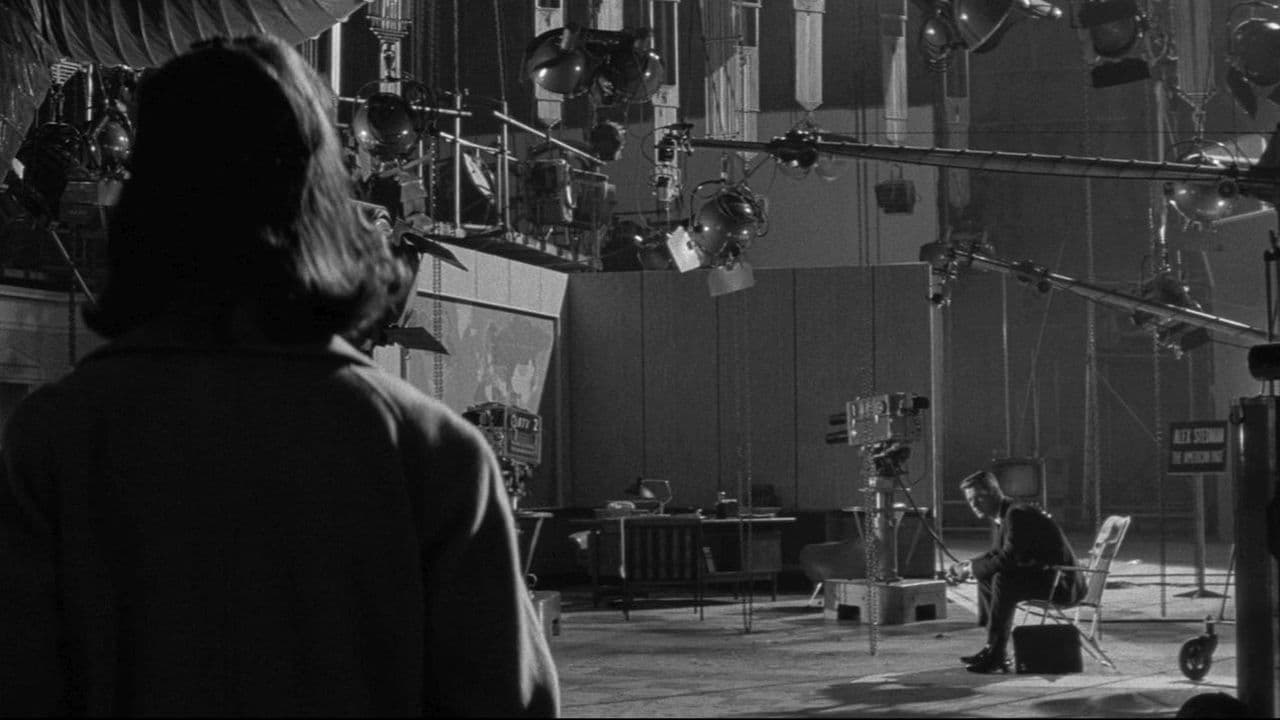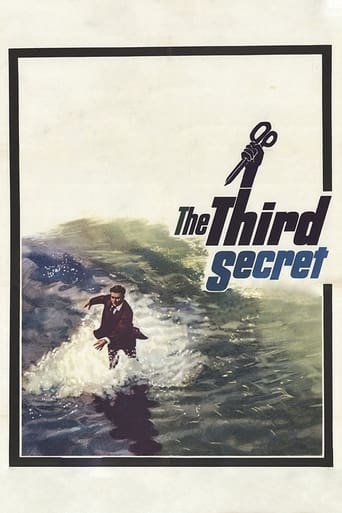

Good concept, poorly executed.
... View MoreIt's hard to see any effort in the film. There's no comedy to speak of, no real drama and, worst of all.
... View MoreIn truth, there is barely enough story here to make a film.
... View MoreClose shines in drama with strong language, adult themes.
... View MoreI enjoyed this a lot. It is a bit dialogue heavy but as long as the dialogue is as good as this is, for most of the time, I have no problem with that and there is sufficient and most effective visual bravura where needed. Very English, it has to be said, and I suppose very much of the cinema of the early 60s. Judi Dench has a small part and would have a much larger part the following year, in 'Four in the Morning' set, funnily enough along pretty much the same stretch of the Thames, at Strand-on-the-Green, between Kew Bridge and Chiswick. The credits appear over a shot of the Thames at Richmond but this would be poetic license rather than a mistake. Stephen Boyd is the main male lead and he does a difficult job well as we ponder the death of an eminent psychiatrist when his daughter insists that her father would not have killed himself. Pamela Franklin plays the fourteen year old who begins to make Boyd even consider he might have killed the doctor before the film races to a rousing conclusion. She plays her role most effectively and will be remembered as the young girl from the earlier, The Innocents. Quiet, considered, intelligent film making, little seen today. Great b/w cinematography.
... View MoreDoes that sound redundant? It's not, you know. Think of all the 'mysteries' that show the murderer in the first few scenes ("The Big Clock", "Sleuth", etc.). "The Third Secret", on the other hand, waits until almost the last scene to reveal the murderer, which makes it a much more satisfying mystery.But what sets "The Third Secret" apart is an exceptionally well-written script with some of the most intelligent dialogue to come down the pike in years. What a refreshing departure from the current fare, loaded with f-bombs and other obscenities. This picture is written for grown-ups by a grown-up. Couple this with flawless performances from all concerned, and you have a picture worth at least a seven in our rating system.I can go no higher because this movie is a bit long-winded, with protracted scenes of very capable actors engaged in aforementioned dialogue to the point of tedium. You will, however, enjoy the overall premise - that the death of a well-known psychiatrist was a murder and not a suicide. Very cleverly handled with a twist ending. "The Third Secret" is well worth your time. It's just that it seems to last longer than it actually does.
... View MorePamela Franklin is at her precocious best in this tale of "psychoanalytical" intrigue with boundary-crossing sexual overtones. Precocity often took her into territory it's now fashionable to call "inappropriate," such as the schoolgirl love interest she played with a randy old artist in "The Prime of Miss Jean Brodie." Though understated and implicit in "The Third Secret," her emotionally-troubled character's relationship with Stephen Boyd's character is in this same vein. All of 18 when I saw this in theatrical release, I was captivated. The movie is still a guilty pleasure, though you have to suspend a lot of disbelief to get back in that naive early-60s groove when sexuality was still portrayed indirectly through characters who were not exactly the Free Spirits that populated such films later in the decade.Look for a spooky cinematic trick toward the end of the film, when Stephen Boyd's character is just starting to unravel the big Secret. Pamela makes a statement about how many patients her father had-- Stephen thinks he misheard her, and asks her to repeat what she said. Watch carefully for the "subliminal" trick, which could easily go unnoticed-- it made the hair on my arms stand up.Hokey in parts, and based on some then-commonplace misconceptions about psychiatric disorders, the movie still works if you can accept it on its own terms. At the very least its understatement is a refreshing change from the noise-saturated frantic bombast of today's not-so-spooky films, with their mindless reliance on sensory overload and oh-so-special effects.
... View MoreA British psychologist has apparently committed suicide, but his teenage daughter is convinced it was murder and asks one of his patients (Stephen Boyd, as an expatriate American journalist) to investigate. Somber, brooding, introspective tale, with Boyd well-cast in the lead; elegantly written (worthwhile just for the dialogue), and moodily shot in black and white. Regrettably, the film is inaccurate in its portrayal of psychiatry; despite what the script says, people suffering from paranoid schizophrenia are no more likely to be murderers than anyone else, and people with schizophrenia cannot hide their illness as though they were undercover spies. That small suspension of disbelief aside, the film ruminates on all sorts of interesting ideas that fit together like inlaid wood.The film is enhanced by an excellent cast, including Jack Hawkins, Richard Attenborough, and Diane Cilento as the three suspects, the now-legendary Judi Dench in her first credited role, and the much under-rated child actress, Pamela Franklin, as the psychologist's daughter. In particular, though, Attenborough's performance as an awkward, insecure art dealer stands out as a remarkable contrast to his performance in another film of 1964--"Guns at Batasi," in which he plays a tough, almost indestructible British Army sergeant.
... View More